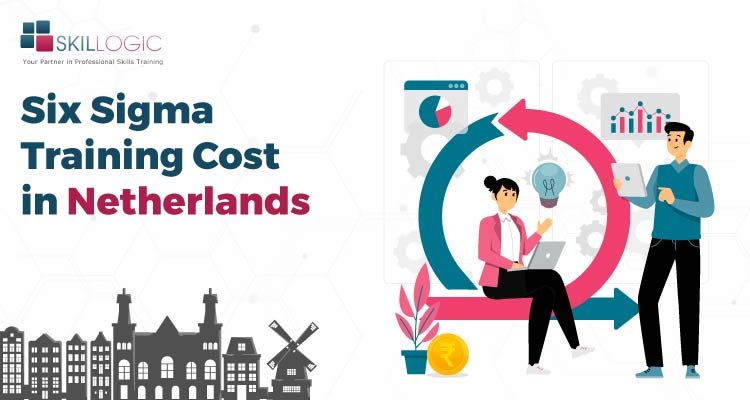How Much is the Six Sigma Training Cost in the Netherlands?

When considering professional development opportunities, it is important to assess the costs associated with acquiring new skills and certifications. In the context of Six Sigma training in the Netherlands, understanding the financial investment required can help individuals make informed decisions about their career advancement. Six Sigma training in Netherlands offers a structured approach to process improvement and quality management, equipping participants with valuable skills and methodologies. However, the specific costs of such training can vary depending on factors such as the level of certification, the training provider, the duration of the program, and the inclusion of any additional materials or support.
Exploring the cost landscape of Six Sigma training in the Netherlands can provide individuals with a clearer picture of the financial commitment involved and assist them in determining the most suitable training options to pursue.
Is Six Sigma Worth Learning?
Six Sigma Course in Netherlands is worth learning. It is a set of methodologies and tools aimed at improving business processes and reducing defects, errors, and variability. Six Sigma provides a systematic approach to problem-solving and quality management, emphasizing data-driven decision-making and continuous improvement.
The Verified Market Research report projects that the global market size of quality management software is expected to reach USD 16.04 Billion by 2027, with a steady compound annual growth rate (CAGR) of 9.9%. By learning Six Sigma, individuals can acquire valuable skills in process optimization, statistical analysis, project management, and leadership. These skills are highly sought after in various industries and can lead to improved career prospects and increased efficiency and quality in organizations.
WHAT IS QUALITY
Why should you consider a career in six sigma in the Netherlands?
Considering a Six Sigma Career in Netherlands offers several advantages of six sigma. The Netherlands is known for its strong business environment, innovative industries, and focus on quality and efficiency. With a robust economy and a high demand for skilled professionals, there are ample opportunities to apply Six Sigma methodologies and drive process improvements across various sectors. Additionally, the Netherlands has a multicultural and inclusive work environment, providing opportunities for networking and collaboration with professionals from diverse backgrounds.
The salary of a six sigma professional in Netherlands ranges from Eur 71,200 per year according to a Salary Explorer report. Overall, a career in Six Sigma in the Netherlands offers the potential for professional growth, a competitive salary, and the chance to contribute to the continuous improvement of organizations in a progressive and forward-thinking country.
Why six sigma certification is essential in the Netherlands?
Six Sigma certification in Netherlands is essential because it demonstrates a candidate's proficiency in process improvement methodologies and quality management practices, aligning with the country's strong emphasis on efficiency and innovation. Having a Six Sigma certification enhances an individual's credibility and employability, as it signifies their ability to drive data-driven decision-making, problem-solving, and continuous improvement efforts. In a competitive job market, possessing a recognized Six Sigma certification can give professionals a distinct advantage, opening up a wide range of career opportunities and enabling them to contribute effectively to the Netherlands' business landscape.
Read these articles:
- What are the Principles of Quality Management?
- The advantages of Lean Six Sigma
- Role of Quality in Six Sigma
What are the different levels of Six Sigma?
Six Sigma is a structured approach to process improvement that aims to reduce defects, variations, and errors in business processes. It consists of several levels or certifications that indicate the expertise and knowledge of individuals in implementing Six Sigma methodologies. The main levels of Six Sigma are as follows:
- White Belt: This is the entry-level certification, providing a basic understanding of Six Sigma concepts and terminology. White Belt holders are typically team members who work under the guidance of higher-level Six Sigma professionals.
- Yellow Belt: Yellow Belt certification offers a deeper understanding of Six Sigma tools and techniques. Yellow Belts can participate in improvement projects and support Green and Black Belt team members.
- Green Belt: Green Belt holders have a comprehensive understanding of Six Sigma principles and can lead projects within their functional areas. They can collect and analyze data, identify improvement opportunities, and implement solutions. Green Belts often work under the guidance of Black Belts.
- Black Belt: In Netherlands, the Black Belts acquire their advanced knowledge and skills in Six Sigma methodologies through rigorous training provided by specialized Six Sigma course in Amsterdam. These institutes equip Black Belts with the expertise needed to lead complex improvement projects, apply statistical analysis, utilize advanced tools, and mentor Green Belts
- Master Black Belt: Master Black Belts are the highest level of Six Sigma certification. They have extensive expertise in implementing Six Sigma across various departments and functions within an organization. They provide guidance and mentorship to Black Belts and Green Belts, and they are responsible for overall program management and strategy.
- Champion: Champions, as executives or senior managers, undergo specialized Six Sigma Training Courses in the Netherlands to equip themselves with the necessary knowledge and skills to promote and support Six Sigma initiatives within the organization.
It's worth noting that some organizations may have additional levels or variations in their Six Sigma certification structure. The levels mentioned above are the most commonly recognized and implemented across industries.
WHAT IS BUSINESS IMPACT OF IMPROVING QUALITY
Why SKILLOGIC Six Sigma training in the Netherlands?
SKILLOGIC is a renowned global IT institute known for its strong reputation and wide range of accredited courses. It offers a comprehensive selection of training programs, including Project Management, IT Services and Architecture, DevOps, Agile, Quality Management, Business Analytics, and Six Sigma. The Six Sigma course in Netherlands, provided by SKILLOGIC, is accredited by prestigious organizations like TUV and ICFQ. The Six Sigma certification training in Netherlands is a 12-day program with 2 hours of online training per day. SKILLOGIC also offers six sigma combo courses that include both Six Sigma Green Belt Certification Training and Six Sigma Black Belt Certification Training. Their courses feature expert trainers, excellent study materials, practical case studies, and complementary courses in Business Analytics Foundation.
The course feature of the SKILLOGIC Six Sigma training in Netherlands is?
- Training content is based on the latest six sigma
- Earn 16 hours of PDU (Training)certificate
- Mock test
- Premium access to six sigma resources and the six sigma job portal
- Complimentary 180 days of high-quality e-learning access
- Learn with the best instructor with decades of experience
How much does a Six Sigma Course Cost in the Netherlands?
The cost of Six Sigma courses in Netherlands can vary based on several factors, including the level of certification, the chosen training provider, and the delivery method of the course. Generally, Six Sigma Certification Courses Cost in Netherlands range from approximately EUR 2000 to EUR 1000. However, it's important to note that the actual cost may differ depending on the specific training provider and additional services included, such as training materials, exam fees, and certification expenses.
SKILLOGIC provides an affordable Six Sigma Certification Combo Training Cost in Netherlands, offering a competitive price starting at EUR 940 for live online training. Students can also benefit from a discounted rate of EUR 589 for the live online training option. Alternatively, for individuals who prefer self-paced learning, the course fee starts at EUR 570, with the complete course available for EUR 349. These cost-effective options enable aspiring professionals to pursue a career in the field of Six Sigma and take advantage of the benefits it brings to businesses across various industries.
Six Sigma Green Belt Certification Training Cost in Netherlands, is EUR 440 for virtual training. However, there is a discounted price of EUR 269 available for students. Alternatively, self-learning options are also provided at a cost of EUR 270, with a reduced price of EUR 169 available for purchase. These options cater to different learning preferences and provide cost-effective ways for individuals to acquire Six Sigma Green Belt certification in Netherlands.
For more information refer these articles:
- How Much is the Six Sigma Training Cost in Switzerland?
- How much is the Six Sigma Certification Training Cost in Malaysia?
- How much is the Six Sigma Certification Training Cost in Australia?
Conclusion
Six Sigma has gained significant recognition and adoption in the business landscape of the Netherlands. Many organizations in the country have embraced Six Sigma methodologies to enhance process efficiency, reduce defects, and improve overall quality. Six Sigma Professionals in the Netherlands are increasingly seeking Six Sigma certifications to boost their career prospects and contribute to the success of their organizations. With a focus on data-driven decision-making and continuous improvement, Six Sigma continues to make a positive impact on businesses across various industries in the Netherlands.
Six Sigma’s 3 Critical Elements to Customer Satisfaction
Read these articles:

 admin
admin 



